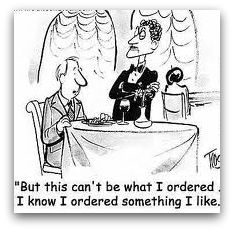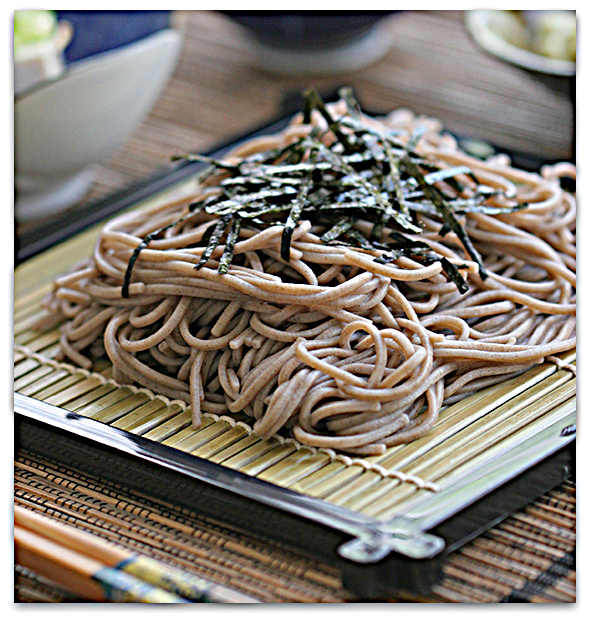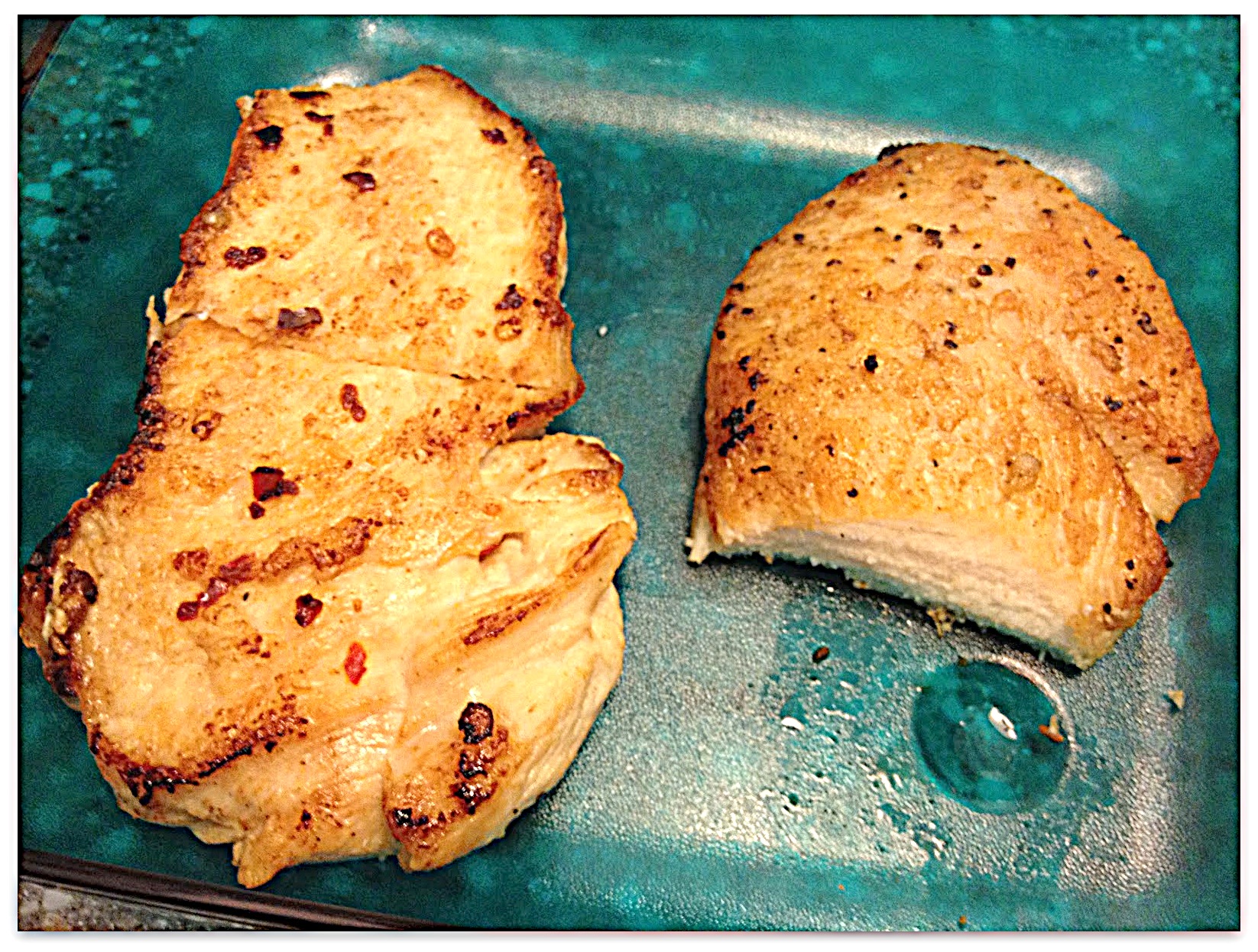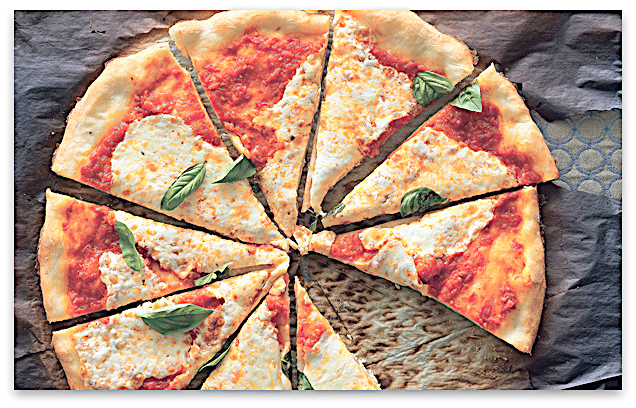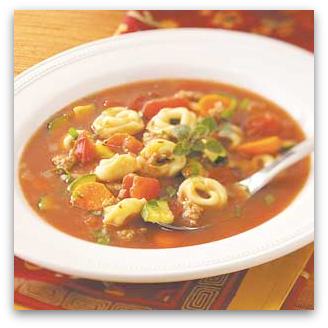A Austerity.
While it is acceptable for a restaurant or cafe to be inexpensive — some diners wish to eat for less than, say, Bolivia’s defence budget — it is not considered good manners to skimp on everything. For example, for those establishments that still dare to serve butter (see Oil), portion-control is definitely not on: we want slabs of the yellow stuff, not something squishy in foil. The same goes for teabags instead of loose-leaf tea, instant coffee, and sugar packed into paper tubes.
B Bill,
Often one of the hardest requests to have fulfilled in a restaurant is the simple “May I have the bill, please?”. Even the time-honoured semaphore of right index-finger scribbling on the upraised palm of the left hand (vice versa if sinisterly inclined) can go unnoticed by a waiter for as long as half an hour. Remember the waiter’s epitaph: God finally caught his eye. It applies to women waiters, too.
When the bill eventually arrives, it should be placed equidistant from all diners, so all can pretend it’s not there. Here, the truly mean can make what is known as the Scottish Excuse, whereupon, at the bill’s imminent arrival (timing is everything), one visits the facilities, returning only if and when the account has been divided and settled by the others. “Oh, I insist!” the miscreant cries, with just not enough force and making a token scrabble to the wallet, hastily adding, “Well, next time . . .”
C Crowding.
Good restaurants know the virtue of ensuring a respectful distance between tables, so when you’re with friends or family you dine with each other rather than uncomfortably adjacent friends or families you’ve never met. (C could also be for Communal — as in those large, high tables in most cafes, which one is supposed to share with others, possibly to encourage instant friendship but which, at least as far as I am concerned, is nothing short of being put in steerage.) Places that are too popular, and therefore want to squeeze in the numbers, have too many tables for their own good. Once, in London, I came back from the gentlemen’s room to find an extra person at our table. Introducing myself, I asked her where she was from. “The next table,” she said. She was.
D Degustation.
An excuse to feed one fragments of the entire menu, jack up the prices accordingly, and succeed only in one remarkable aspect, by making one hungrier at the end of the evening than one was at the beginning. The menu degustation also gives the waiter the ideal excuse to interrupt throughout the proceedings, announcing each tiny course as if presenting an endless line of bejewelled aristocrats at a ball in pre-Revolutionary St Petersburg. Indeed, some establishments prefer to shun proper menus, leaving the choice to chef. Really, degustation is to eating what the bonsai is to gardening.
E Entrance.
Or how to make one feel welcome. While one is not looking for a flourish of trumpets, red carpet and serried ranks of waiters bowing deeply from the waist, it is always encouraging to be shown at least some warmth on arrival. Why, then, the chilly half-smile and staccato “You have a booking?”. This usually signifies an obligatory 45-minute wait in the bar or, if no bar, hanging around trying not to appear too hungry (see Queuing). If you’re lucky, coats and scarves may be taken.
Entrances are sometimes little more than doorways with some space behind, exposing diners to frequent blasts of outside air as the ceaseless procession of arrivals and departures continues.
F Familiarity.
As with Guys (see below), some waiters are determined to be not only equal-opportunity employees but on a level tabletop with their customers — if a level table can be found (see Wobbly). The word “service” has come to mean, in a lot of cases, a sort of begrudging collegiate approach: we’re-all-in-it-together-guys-so-let’s-make-the-most-of-it-shall-we? Thus some waiters, far from being servile, behave as if they have a leave pass to join your group (I know of one case in which a waiter pulled up a chair and joined a dining party), thereby practically giving orders as well as taking them. Sometimes, excessive familiarity can backfire, such as a recent case I know of when a waiter, observing diners had left some food on their plates, said haughtily, “Well, I don’t have to ask if you enjoyed your meals!” The manager was summoned and there was no charge.
G Guys.
This all-purpose term, beloved of waiters, has become the most abused form of greeting to any number of diners more than one: I’ve yet to be welcomed “Hi, guy!”. This could, though, be just acceptable if Guy happens to be your first name — step forward, Messrs Pearce and Fawkes. Otherwise, what’s wrong with “Sir” or “Madam”? “Guys” has no point other than excessive familiarity (see above) on the part of the greeter and the feeling of imminent implosion on the part of the greetee. It also turns the masculine “guys” into a feminine noun, which would not go down well at all in France, where no waiter would dare say “Bonjour, Geeze”, let alone use the second-person familiar, “tu”.
H Happy
Birthday. Celebration is one of the many reasons restaurants exist. But why do managements, let alone diners, draw attention to the fact it is someone’s special day with a loud and lusty chorus of the world’s most banal song — think of the repetitious lyrics? One night, not so long ago, there were birthdays, cake and sing-shouting at five different tables at a popular South Yarra restaurant that is not all that large. To have one birthday is acceptable; to have five, at various stages through the evening, is ludicrous.
I Imitation,
sincerest form of … Someone, somewhere has the power of originality, of culinary invention that brings new dishes and cooking methods into the world. Then, as with cheap and nasty reproductions of Paris haute couture, everyone wants to have a go, to various ends. Take foam, the lighter-than-air, more-expensive-than-caviar dish that made elBulli’s name and is best left there. Or, back a few decades, nouvelle cuisine with bonsai broccoli and carrots, raspberry vinegar and a single boned quail leg arranged in the middle of a vast plate the diameter of a tractor tyre. Such fads come and go, but generally have little to do with popular appetites or are ridiculously expensive — witness Wagyu beef. The worst imitative dish I had was in the late 1980s, a version of cassoulet that did not contain one bean. For sheer audacity, it was nothing short of a miracle. It would have taken the wind out of my sails if I’d had any.
J Jus, and other pretentious terms. Whatever happened to gravy?
K Kudos.
While it is OK (if a little too obvious) to display favourable reviews of a restaurant in its windows, it might be better if managements imposed deadlines on such notices. It is one thing for passers-by to learn of a “superlative” steak dish or “brilliant” use of the deep-fryer if this all happened within a reasonable time-frame. It is quite another, when you look to the top of the yellowing cutting, to find the piece was written in 1985.
L Language.
In which we consider the menu and descriptions and terminology within. A decent menu tells you what is available, but does not lard the bill of fare (or Bill of Fayre, if it’s a Medieval Ye Olde Chop House – see Themes) with unnecessary and inaccurate adjectives such as “mouth-watering”, “tender”, “freshly picked”, “line-caught”, “creamy” and “delicious”. Spelling is important. A general rule of thumb is to avoid any establishment that spells the word “restaurateur” as “restauranteur”.
M Music.
My infallible theory — the quality of a restaurant’s food is in inverse proportion to the size of its dance floor — has lessened in effect over the years mostly because what we used to call “floor shows” have gone the way of chicken-in-the-basket and Danish blue as the cheese course. Music, however, continues to blight many a restaurant — music that is often loud, intrusive and turned up as it gets nearer to closing time. Some years ago, in a fashionable Italian place in the city, when the Three Tenors were at their height, Nessun Dorma and Granada screamed over the tagliatelle, saltimbocca and civilised conversation. I asked the waiter if, please, it could be turned off or at least down. He returned, after consulting the manager, and said, “I’m sorry, Signor, but the owner likes it at that volume.”
N Noise.
Mmffg mmmgrrr ffffl mphhh . . . WHAT? CAN’T HEAR YOU! Sorry . . . modern restaurant design may be ergonomically, aesthetically and morally wonderful, but acoustics are often left to last, if at all. Add to this, music (see above), and one can gain laryngitis and madness in the one evening. I have been in places without one sympathetic surface to absorb speech rather than deflect it. So much so, that one almost had to bring along subtitles.
O Oil.
Where once bread with portion-control butter sufficed, the small white dish with an opaque smear of a virgin squeeze is now omnipresent on most respectable tables. Sometimes the golden pool has as its centre a darker blob of balsamic vinegar. The bread, usually chunky and rustic, could become a doorstop in the next world.
P Pepper.
And still it happens — the Australian equivalent of a Japanese tea ceremony, possibly taught at hospitality college. “Cracked pepper with that, sir?” With which the waiter heaves a pepper grinder the size of a telegraph pole over your shoulder, twisting its top in the same way the Queen Mother waved from the back of a Rolls-Royce. When will restaurants learn two fundamental facts: condiments should not be applied to food until it is tasted and thought necessary; and that it is not a false economy to place a small grinder on each table next to the salt, which is, by the way, never dispensed by a waiter? And please don’t fob us off with those tiny wooden bowls filled with cracked pepper: what other fingers have been there before yours?
Q Queuing.
Possibly the worst procedure in the dining-out experience. One used to encounter the so-called maitre d’ — a haughty soul, resembling a retired diplomat, who survives only in swanky American restaurants and is recognisable by the red silken cord that separates him and his lectern from the rest of society. These days, this person survives in the form of a bouncer who, when approached with a simple request such as “Do you have a table for two?”, hides a snigger or smirk and says, “Come back in a week.” At best, he will say, “Not for 45 minutes,” which means 90 minutes — restaurant time is always under-exaggerated. Unless there is a table available here and now, my answer is always, “No, thank you.”
R Restrooms.
More often than not, restaurant managements are coy about letting one know where to go. One heads past the kitchen — on some occasions, through the kitchen – outside, through driving rain and howling wind, to a small door with a crescent-moon carved in the wood; invariably, it is locked from the inside as someone is using it. Or the restrooms are cunningly concealed by green translucent glass with the tiniest “M” or “W” engraved at floor-level. Full marks if there are proper towels or even paper ones. No marks for hot-air dryers.
S Specials.
Another tired ritual by which this evening’s waiter arrives at table, usually during the most interesting part of a conversation, and says: “Excuse me guys but can Ijust run through tonight’ specials?”. Whereupon follows a recitation containing some or all of these words: “freshly”, “sun-ripened”, “oven-baked”, “pumpkin”, “Wagyu”, “artisan”, “foam” and “wok-tossed”. The list is long enough to ensure that one remembers only the last special, thereby having to ask for an encore. Unless, of course, they are written on a blackboard on a nearby wall — in which case, why bother with the verbal delivery?
T Themes.
Unless it is generic to the style of cuisine — French, Italian, Chinese, etc – the themed restaurant or cafe can be a trap for the unwary. I know of one hamburger establishment whose waiters burst into song at regular intervals, making you feel as if you’re in a remake of Grease. Be thankful the days of ostentation, of kebabs on flaming swords and haggis borne in by pipers, have gone the way of the at-table chafing-dishes and separate menus for women. Theatre restaurants should be avoided — especially if they have a medieval theme with waiters who look like the late Marty Feldman — and those that encourage audience participation.
U Unenthusiastic.
Almost as bad as hyperactive.
What one wants from restaurant staff is consistency of mood: not so much that it becomes a leaping-waiter display; not so little to induce melancholy. In its own way, lack of enthusiasm can be as great a dampener as lukewarm coffee. Years ago, a friend in a smart Sydney restaurant ordered the pate. The waiter wrote it down, then said gloomily, “Can’t you be more imaginative?” More recently, I asked a waiter who looked as if he were in mourning for his soul if he could recommend the soup of the day. He stared for a moment at the floor, then said, “No.”
V View.
Along the lines of my dance-floor theory (see Music) is the equally sound analogy: the higher the restaurant, the more pretentious the quality of the food. Up here in the stratosphere, watching cumulus clouds and low flying aircraft, you generally find pompous service (no “Hi, guys!” here), menus the size of broadsheet newspapers and printed in curly wedding-invitation font, napery folded into Arts Centre spires or bishops’ mitres, and spherical wine glasses that bong rather than clink when toasts are made. These places still torture vegetables into weird and wonderful miniature versions of themselves, use such terms as “oven-baked”, and expect you to gasp with admiration and awe when the soufflé finally arrives.
W Wobbly.
As in table leg. There are many certainties in this world — for example, any op shop you enter will be staffed by the same two old ladies — and the wobbly table-leg is one of them. Why, of all the tables in all the restaurants in the world, does mine have the gammy leg? Furthermore, why does it resist any form of orthopaedic improvement (folded Metcards, etc) and continue to shake and shudder at the slightest pressure? Good restaurants don’t have wobbly tables: they are checked by the hour. I’ve yet to find one.
X X-rated food.
Usually the prerogative of cheap, overcrowded restaurants whose sensationalism extends to serving special-occasion desserts comprising a peeled banana with a lighted sparkler on its tip sticking out of two scoops of vanilla ice cream (see also Happy Birthday). Such vulgar displays, although not as prevalent as they were, can occur in the sort of places that still believe cocktail umbrellas are the height of fashion.
Y Yum cha.
The best excuse for bad manners ever invented. What other cuisine in the world judges its success from who can make the greatest number of soy-sauce stains on the tablecloth in the shortest possible time?
Z Zero-tolerance.
Of almost every breach of manners and decency represented in the above list. Listen up, guys, before I recite the specials and proffer the pepper and ignore your requests for the bill, grab a seat at the bar for a few hours until we can find you a table with a wobbly leg. And do enjoy Andrea Bocelli at full belt. It’s not your birthday, by any chance?





